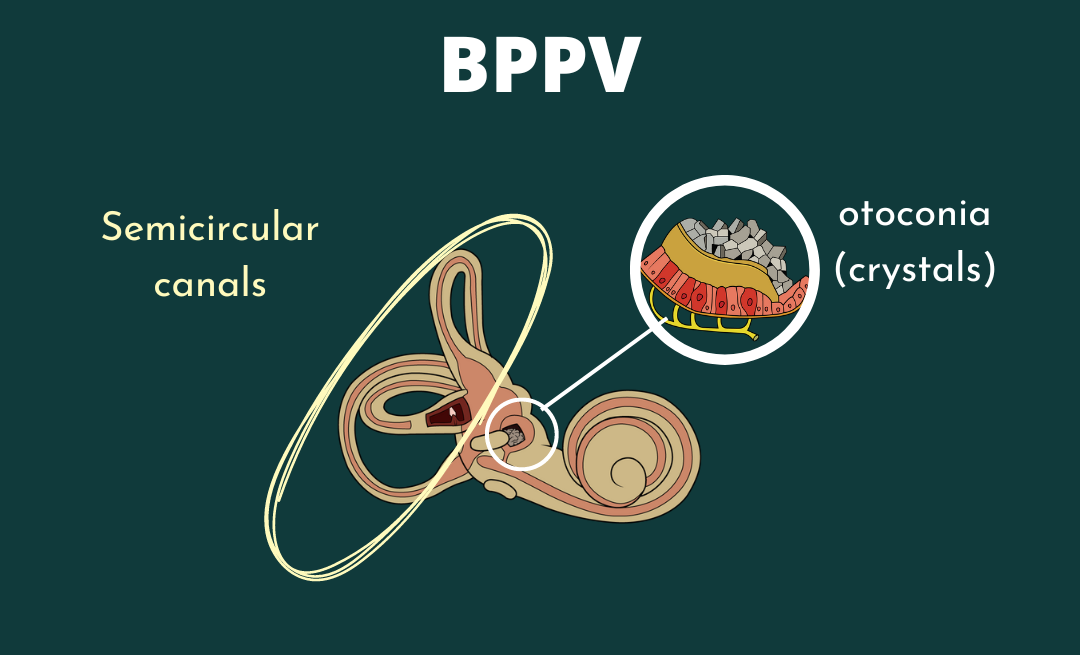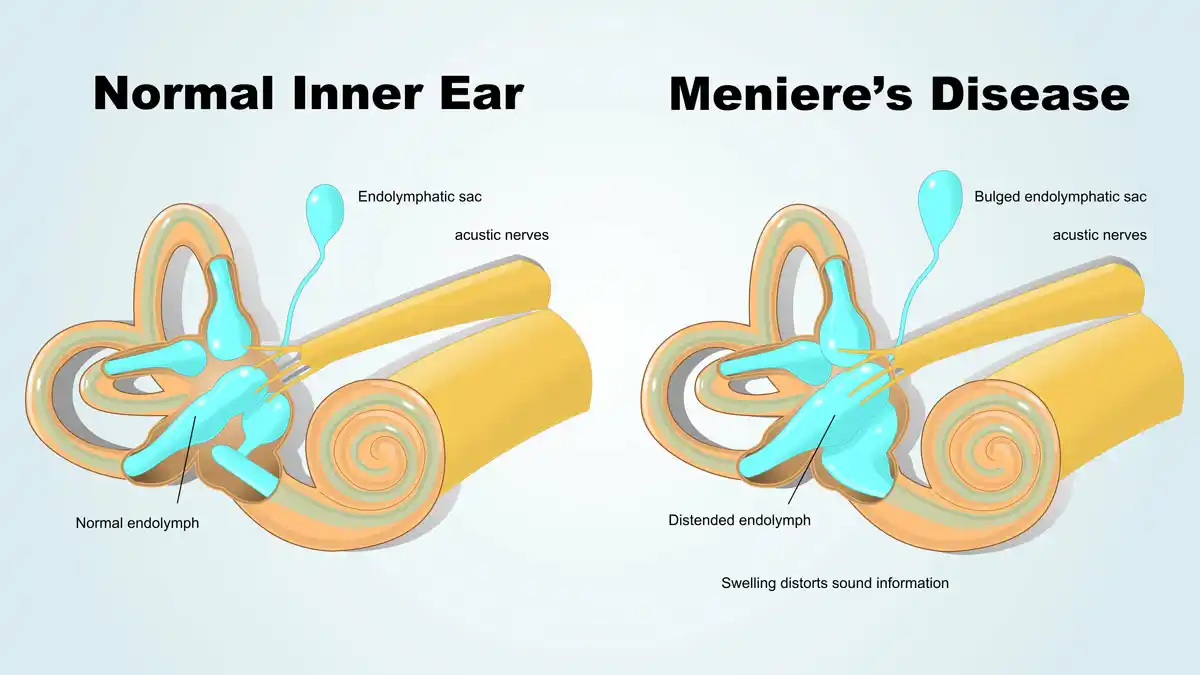Dizziness is a common and often distressing symptom that can arise from various conditions. Among the most frequent causes of dizziness are Benign Paroxysmal Positional Vertigo (BPPV), Meniere’s disease, and vestibular migraine. While all three conditions may involve dizziness or vertigo, they have distinct underlying mechanisms, symptoms, and treatments. Understanding the differences between these disorders is key to seeking proper treatment and relief. In this post, we will explore each condition in detail and explain how to tell them apart.
Benign Paroxysmal Positional Vertigo (BPPV)
BPPV is one of the most common causes of vertigo and is often triggered by changes in head position. It occurs when small calcium crystals, called otoconia, dislodge from their usual location in the inner ear and migrate into the semicircular canals, disrupting the normal flow of fluid. This disturbance causes sudden, brief episodes of vertigo, particularly when turning the head, lying down, or getting up. Symptoms of BPPV include spinning sensations, nausea, and balance issues, but hearing loss or headaches are uncommon. Fortunately, BPPV is treatable through repositioning maneuvers, such as the Epley maneuver, which helps return the crystals to their proper place, alleviating symptoms.
Meniere’s Disease
Meniere’s disease is a chronic inner ear disorder characterized by episodes of vertigo, fluctuating hearing loss, tinnitus (ringing in the ear), and a feeling of fullness in the affected ear. The exact cause of Meniere’s is not well understood, but it is believed to result from an abnormal amount of fluid (endolymph) in the inner ear. Vertigo attacks in Meniere’s disease can last anywhere from 20 minutes to several hours and are often accompanied by severe nausea and vomiting. Hearing loss may become permanent over time, and the condition typically affects one ear. Treatment focuses on managing symptoms through medications like diuretics, a low-sodium diet, and in some cases, vestibular rehabilitation or surgery for severe cases.
Vestibular Migraine
Vestibular migraine is a type of migraine that primarily affects the balance system, causing dizziness or vertigo without the classic headache. People with vestibular migraines may experience episodes of dizziness lasting from a few minutes to several hours, often accompanied by sensitivity to light and sound, visual disturbances, nausea, and sometimes mild headache. Unlike BPPV or Meniere’s disease, vestibular migraine is rooted in abnormal brain activity affecting the vestibular system. Treatment involves a combination of migraine management techniques, including dietary and lifestyle changes, medications to prevent migraines, and vestibular rehabilitation exercises to improve balance.
Similarities and Differences
While BPPV, Meniere’s disease, and vestibular migraine all involve dizziness or vertigo, they differ significantly in their causes and associated symptoms. BPPV is characterized by short, triggered episodes of vertigo linked to head movements, whereas Meniere’s disease presents with longer-lasting vertigo episodes, hearing loss, and ear-related symptoms. Vestibular migraine, on the other hand, can mimic both conditions in terms of dizziness but is usually linked to migraine symptoms like visual aura or light sensitivity, without ear-related issues. The duration and frequency of vertigo attacks, as well as the presence of other symptoms like hearing loss or migraine, are crucial in distinguishing between these conditions.

Summary
Differentiating between BPPV, Meniere’s disease, and vestibular migraine is important for proper diagnosis and treatment. While BPPV is related to mechanical issues in the ear, Meniere’s disease involves fluid imbalances, and vestibular migraines are linked to brain activity. Each condition has unique symptoms and treatment approaches, but understanding the key differences can help those suffering from dizziness seek the most appropriate care and manage their condition effectively. If you are experiencing unexplained dizziness, a visit to a healthcare provider specializing in balance disorders can help determine the cause and provide the necessary treatment plan.
Want to learn more about dizziness and other vestibular tools from the experts and be a part of a supportive community to get back to your daily life? Find out more at this link: https://thevertigodoctor.com/vestibular-group-fit
Disclaimer:
Remember: this post is for informational purposes only and may not be the best fit for you and your personal situation. It shall not be construed as medical advice. The information and education provided here is not intended or implied to supplement or replace professional medical treatment, advice, and/or diagnosis. Always check with your own physician or medical professional before trying or implementing any information read here.






